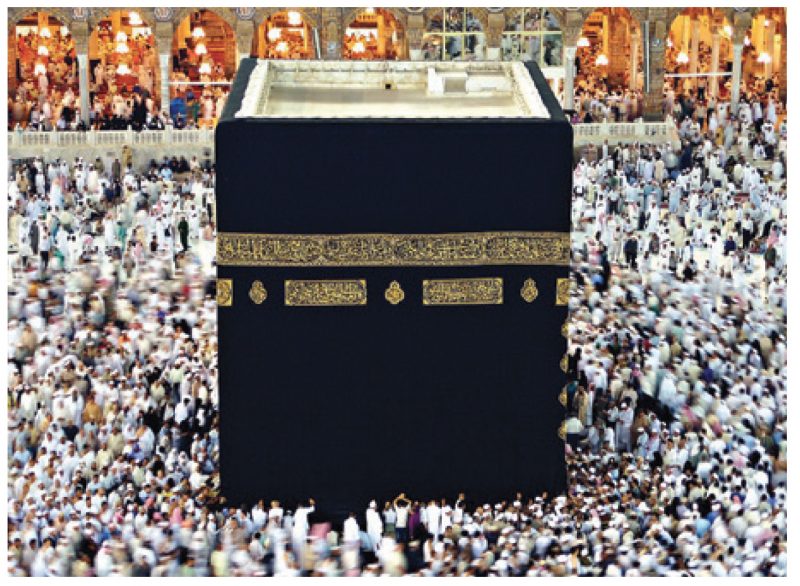As I was reminded this past October, the hajj, the annual Islamic pilgrimage to Mecca, which every devout Muslim is required to undertake at least once in their lives, begins with the Tawaf, the first of seven ritual actions taken during that week, consisting of a counterclockwise circumambulation around the Kaaba, the holy of holies, a massive black cube building slotted in the middle of the vast interior plaza of the Al Masjid al Haram mosque (said to be the first house built for humanity to worship Allah, indeed long before the days of Muhammed, all the way back to the time of Abraham, who was said to have worshiped there).
The pulsing, well-nigh mesmeric quality of the mass devotion evinced during the Tawaf was gorgeously and hauntingly evoked a few years ago at a show on the hajj in London’s British Museum when the Saudi artist Ahmed Mater placed a simple cuboid magnet amid a field of iron filings.
But the Tawaf is only the beginning. Subsequently, the pilgrims (numbering upward of six million a year) make their way out of town to Mount Arafat, where Muhammed is said to have made his farewell sermon during the first hajj. Then on the way back they pass through Mina, where three tall pillars symbolize the torments the devil visited on Abraham as he proceeded toward the sacrifice of Isaac; there the pilgrims engage in the Ramy al-Jamarat, the ritual stoning of the devil, literally casting stones at each of the pillars in question before returning to the Al Masjid al Haram mosquefor one last farewell circumambulation about the Kaaba.
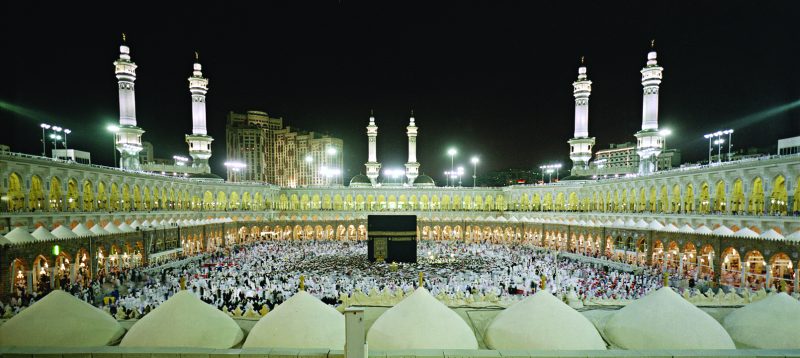
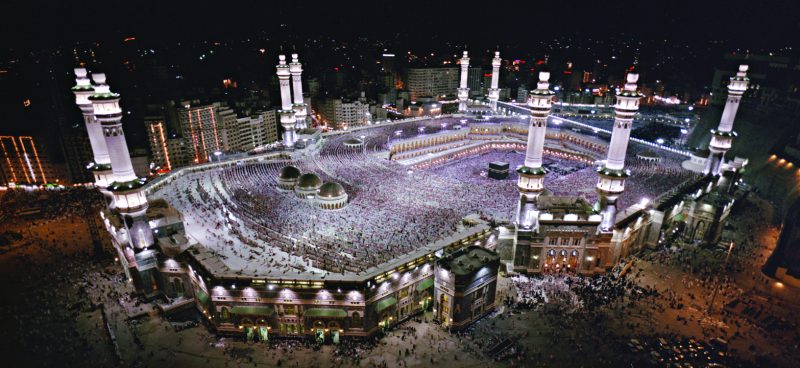
Or, anyway, that’s the way they used to do it. Since 2004, when the swell of crowds became too vast to contain, the pillars have been replaced by long walls, with catch-basins below to collect the pebbles. But that’s the way the young Osama bin Laden, son of a billionaire construction magnate whose domain conspicuously included the holy sites in Mecca, would have done it as, year by year, he found himself becoming more and more devout.
Years later, when Osama’s righteous anger turned on the Saudi royal family and the United States (and specifically the way the former had allowed the latter, which Osama had come to identify with the Infidel, to station its troops on the holy soil of the Arabic peninsula), is it any wonder that his attention might have turned to another pair of towers?
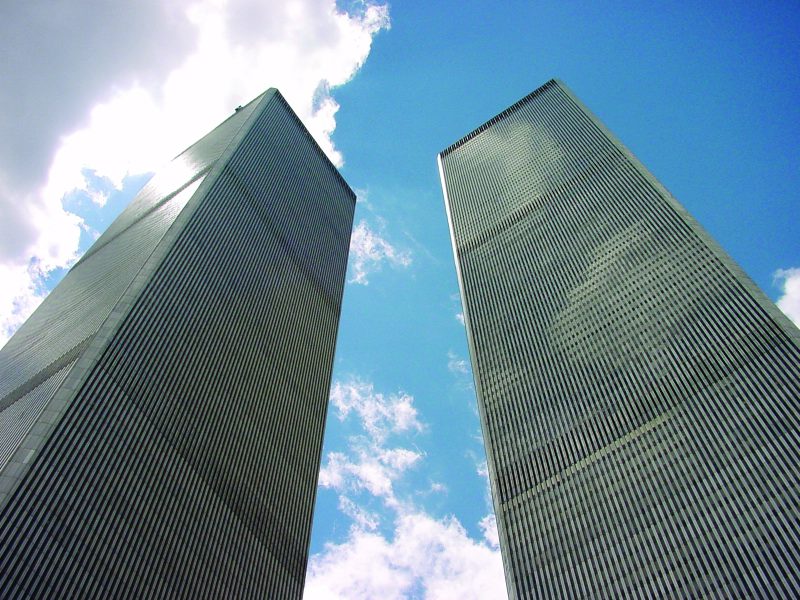
A pair of towers that cast itself as the very epicenter of the entire American capitalist system: “the World Trade Center,” after all. I for one always thought of those two crisp, clean vertical bars as the twin slashes piercing the S of the traditional dollar sign, and I wouldn’t be surprised if the towers suggested similar associations (one might almost say provocations) to others, though I was a bit taken aback recently when, scanning the internet, I came upon this unsettling cover image from a 1987 issue of Fortune magazine:
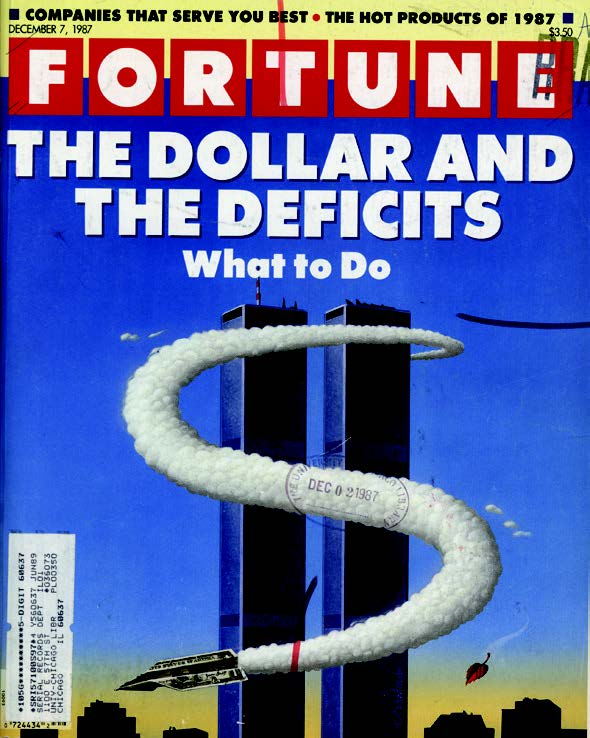
I’m hardly the first to have made the association between the stoning of the devil ritual in Mecca and the events of that terrible day in September 2001, when Osama and his colleagues hurled their terrible projectiles at the Twin Towers of New York:
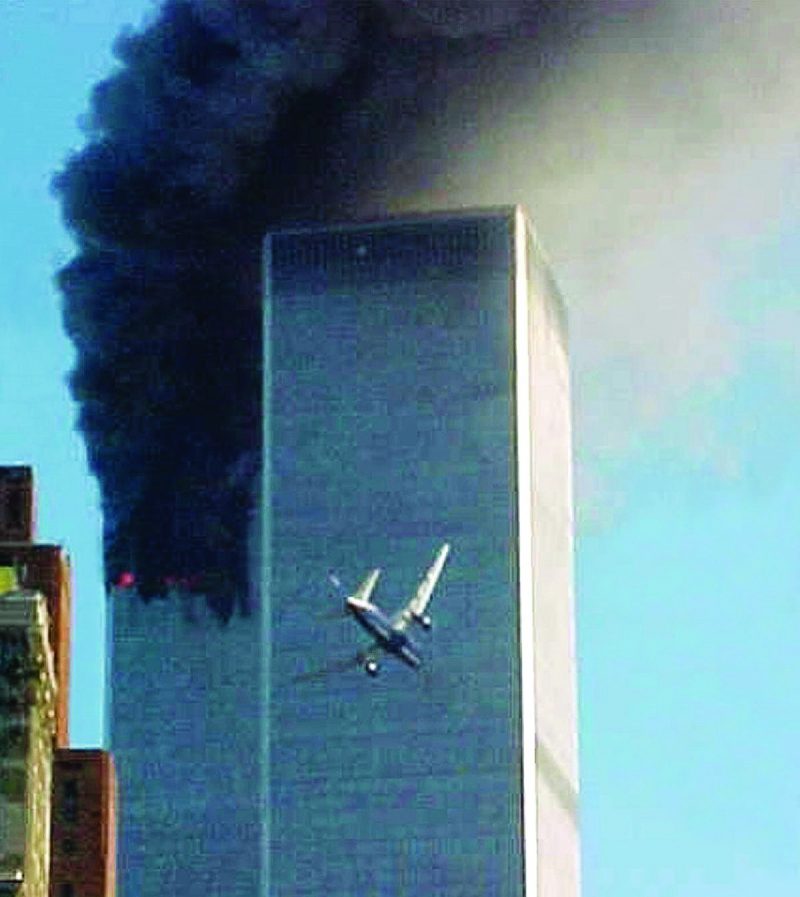
But what to make of the afterlife of that convergence? The way, for example, that when the time came to choose a design for the memorial to the dead from that horrible event, the committee unanimously alighted on a solution that bears an uncanny resemblance to the Kaaba back in Mecca: a sort of counter-Kaaba, an empty Kaaba, a Kaaba-shaped hole?
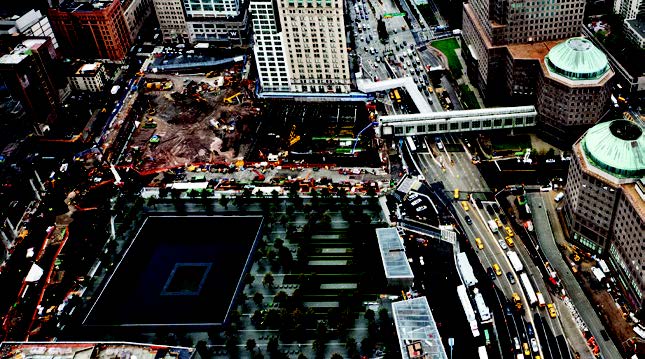
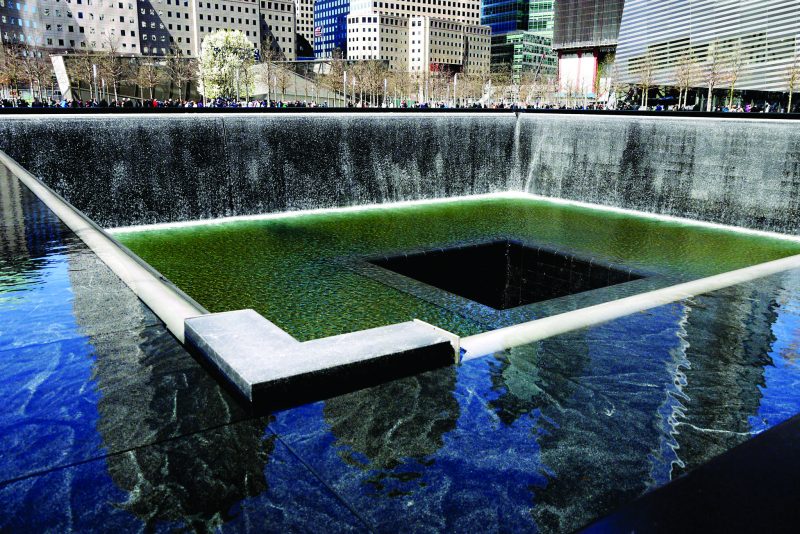
One which now elicits pilgrimages as poignant as those back in Mecca:
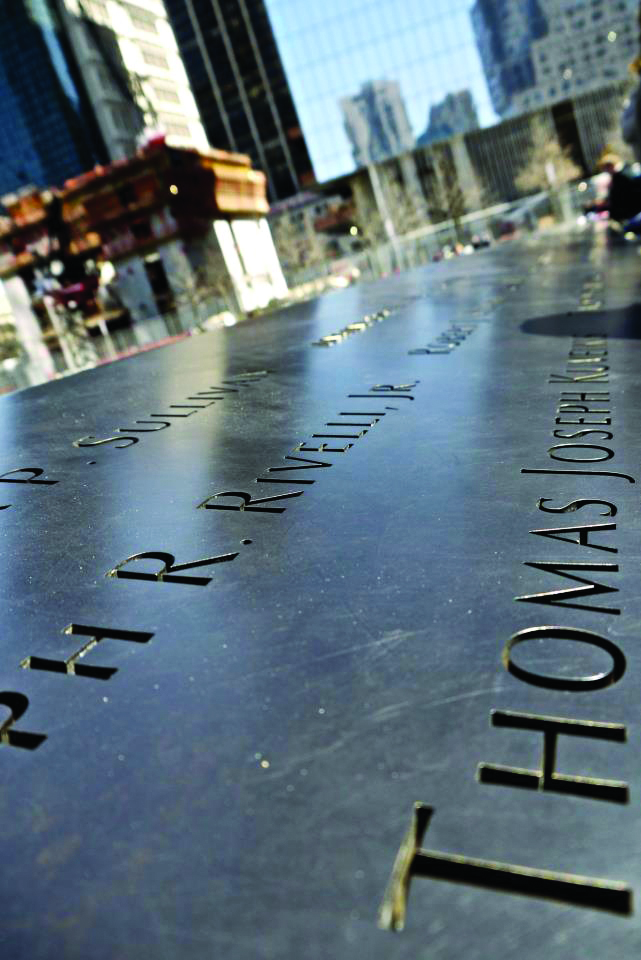
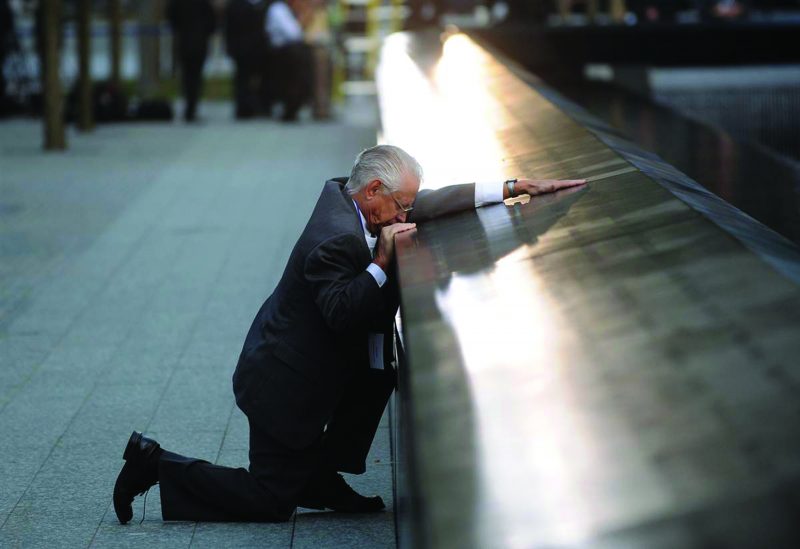
And what to make of this further curious convergence? The way that the attempt to build an Islamic cultural center a couple of blocks away from the scene of the 9/11 memorial a few years back presently ran aground of hepped-up protests to the dubious effect that such placement would constitute a virtual act of sacrilege?
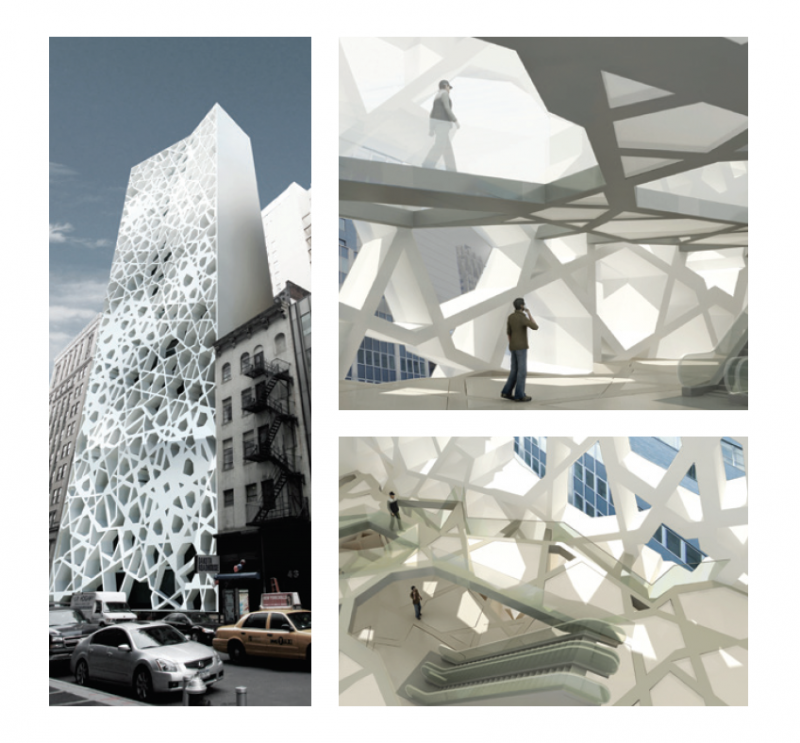
Meanwhile, back in Mecca, speaking of sacrilege, the years since 9/11 have seen a gargantuan kitsch edifice come lumbering into dubious being, towering Trump Vegas–like over the holiest of holies, the thoroughly unholy Royal Mecca Clock Tower apartment building and commercial complex:
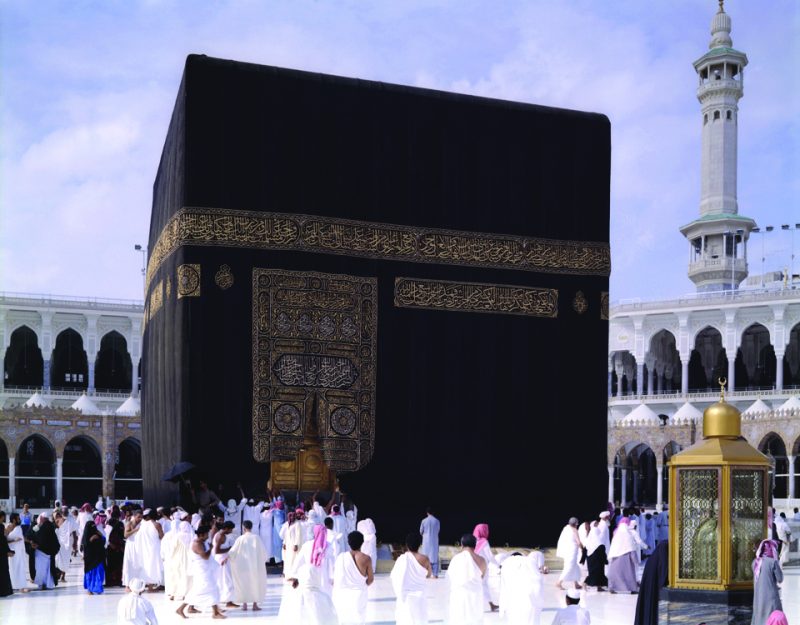
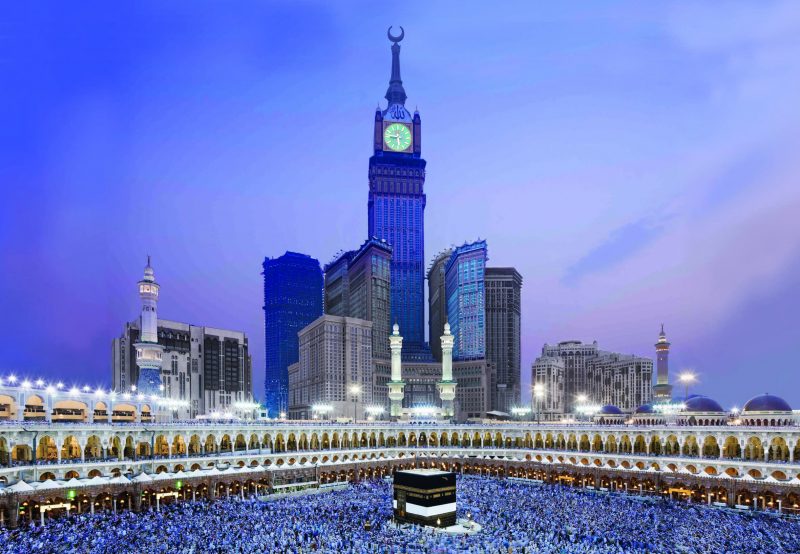
Its principal developers, incidentally? Yup: the Bin Laden Family.

